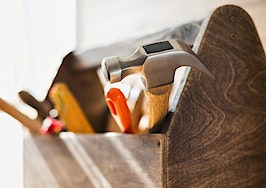You work hard in your career to define yourself as a specialist so you can be recognized as the master of your trade. In our world of real estate, identifying your niche is one of the most imperative steps you can take toward thriving and succeeding long term.
There are dozens of specialties on which you can build a successful practice, from internet marketer and blogger to international specialist to relocation guru. Many agents try to identify with too many specialties, but because it’s impossible to become an expert in many channels of business, these agents unintentionally revert back to being generalists.
Earning the title of neighborhood guru doesn’t happen overnight. It takes true grit, dedication and a great deal of research to become a local market expert people call when it’s time to buy or sell a home.
Here are four tips for strengthening your personal brand and becoming a true neighborhood expert:
1. Find your target area
Most successful agents start by focusing on a geographical target. In extremely competitive markets like Denver, Austin and Seattle, agents often set their sights on highly desirable neighborhoods.
But becoming a neighborhood specialist requires much more than simply knowing it’s a desirable area — you have to focus on the details, the features that make the area unique, the schools nearby, the hospitals, the nightlife, etc. Sharing this information with clients will give you a competitive edge.
When deciding which area to specialize in, keep it close to home. Choose the area you currently live in, have lived in, have worked in often or feel a particular affinity for — don’t just choose the hottest neighborhood you know of.
2. Do your homework
If you aren’t familiar with an area and have an upcoming listing appointment or buyer tour, plan a few days of reconnaissance prior to meeting the clients. Search for online reviews of neighborhood amenities and businesses, drive the area, attend open houses, or set up previews, and have lunch at a local tavern.
Also, make sure to know your comparables (comps), and include expired properties and sales going back one year. Look for trends you can turn into informative talking points.
After the recon, find out what your buyers’ hot buttons are. Or ask a colleague in your office who’s worked in the area what creates the desirability.
Do your buyers want to be 20 minutes or less from work? If so, search the driving directions on a couple popular apps during rush hour for a few days to get a sense of the real drive time. Are they looking for a neighborhood with a lot of interaction and social opportunities? Head back over on a Saturday afternoon, and see if it’s a quiet neighborhood or a social one.
Ask sellers during your pre-listing call what they love most about their current area. Ask them to prepare a list; you might learn a few new tidbits that will help with your marketing plan.
It’s also a good idea to do some research on the neighborhood’s current and historical stats. Your local Realtor association should be able to provide these.
3. Be seen
If you want to be well-known in a specific neighborhood, have plenty of signage on display. If people in the neighborhood constantly see your for-sale signs on neighbors’ homes, you’ll be top-of-mind when it comes time to list.
When holding an open house, walk the surrounding blocks that morning with flyers for front doors inviting the neighbors to come over in the afternoon. Often neighbors will be out, creating the opportunity for a chat. This one tip from my first broker helped create a quick boost in business.
Also, make sure to go overkill on your open house arrows. Yes, it’s a pain to put them out and pick them up, but the inconvenience is the price to pay for building your name recognition.
Don’t forget to blog about the desired neighborhood regularly. By constantly including the neighborhood name in your blog and website copy, your search engine optimization (SEO) will rank you higher for that specific keyword, which is helpful for those who are browsing for a specific neighborhood online.
Look into any neighborhood groups you (or interested buyers) can join for networking. This can help you learn what the buzz is among neighbors and business owners. Advertise in local publications. They tend to have better readership and a longer shelf-life than large regional or national publications, and the advertising cost is far less.
4. Work with a well-known brokerage
Your broker or brokerage may have compiled a lot of this research for you. If you have colleagues who are open to sharing, ask a neighborhood expert what he or she points out when selling the area.
When selecting a brokerage, do your due diligence to find one that truly supports you and your business. At Kentwood Real Estate, for example, every real estate agent would gladly help a colleague. There are tools for comparative market analyses (CMAs), community information and buyer and seller information provided by many brokerages to inform and help agents become experts.
Brand backing is vital, particularly in very competitive markets. The best brand isn’t always the one with the cheapest fees because building, supporting and creating equity for a brand will cost the brokerage money. Think of it more as a business partnership versus trying to squeeze everything you can from your broker. You will win the day in the long run.
The takeaway
When you’re selling in a metropolitan area, or even a more rural one that has variety and nuance, above all else, it’s vital to provide the highest level of expertise to clients. They’ll benefit from your informed perspective on what the area offers and what the property sales have been like in the recent past.
Some neighborhoods can vary from block to block, some neighborhoods offer a wealth of walkable restaurants for foodies, and some are close to parks and trails for outdoorsy types.
If you want to be known as a neighborhood specialist, do your research and be prepared. If you don’t know the answer, it’s OK to say you’ll get back to them, but you don’t want to have to say it more than once or twice,
Gretchen Rosenberg is the president and CEO of Kentwood Real Estate in Denver, Colorado. Follow her on LinkedIn.com and Twitter.









